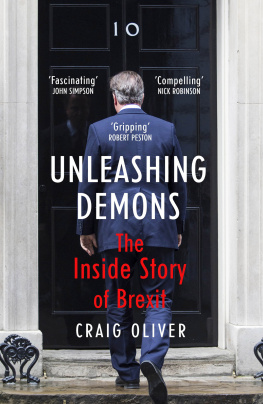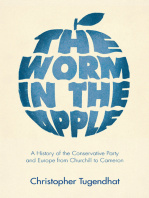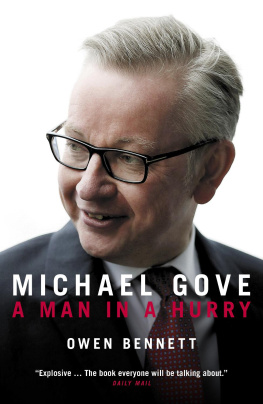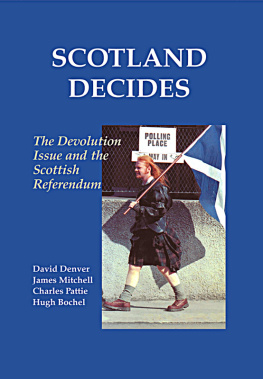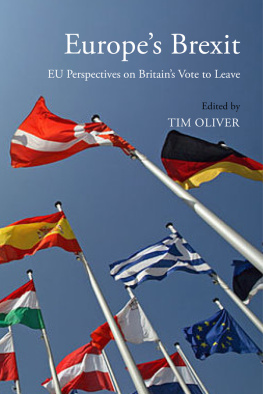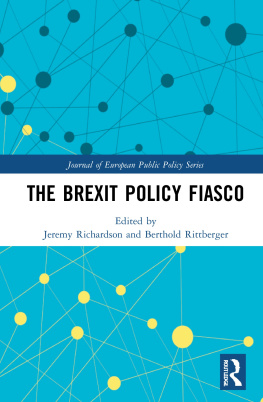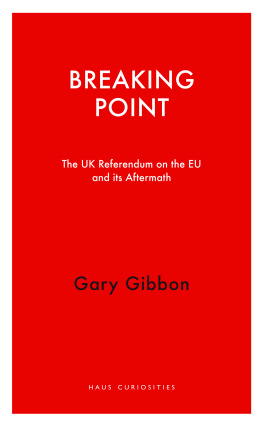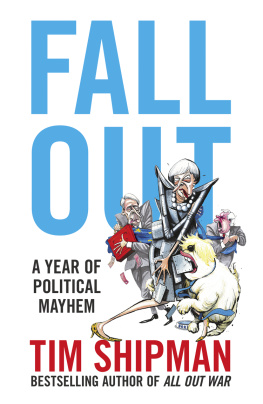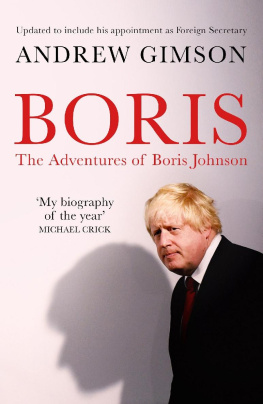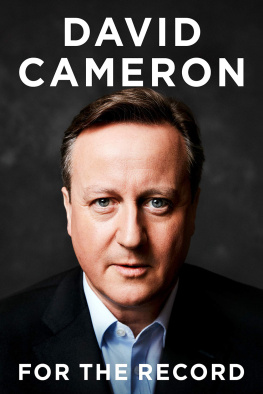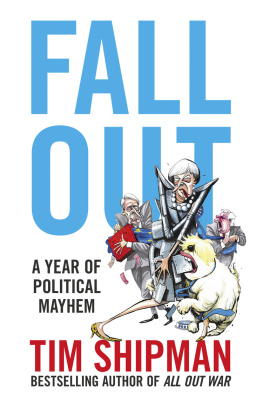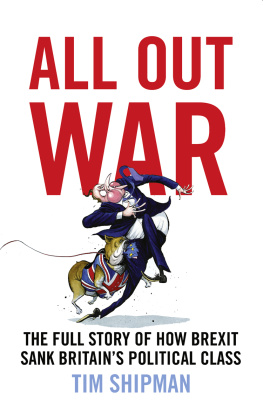About the Author
Before entering 10 Downing Street as Director of Politics and Communications, Craig Oliver was an award-winning journalist. His roles included editing the BBCs News at Six and Ten, Controller of the World Service and Executive Editor of ITVs flagship news programmes. He has three daughters and lives in London.
Acknowledgements

The No. 10 media and strategy team.
Back row: Richard Chew, Ramsay Jones, Graeme Wilson, Caroline Preston
Front row: Giles Kenningham, Adam Atashzai, Craig Oliver, Ameet Gill
Unleashing Demons could not have been written without the help of many people.
Colleagues who became close friends at No. 10 and Stronger In took the time and effort to read the manuscript and offer constructive criticism. Ameet Gill, Graeme Wilson, Lucy Thomas and Adam Atashzai were particularly helpful. All the opinions and any mistakes or misunderstandings are mine and not theirs.
Andrew Cooper, the pollster for Stronger In, was enormously helpful with the sections of the book dealing with polling. He also helped me to break down the results into digestible form.
I would also like to thank the rest of the political media team at No. 10, Giles Kenningham and Caroline Preston, and the comms team at Stronger In, including Joe Carberry, Amy Richards, James McGrory and David Chaplin all of whom set aside party differences to work for a common cause we all believed in.
My agent, Sheila Crowley, has been supportive and encouraging throughout.
Rupert Lancaster took a huge gamble commissioning this book. We had never met before and I had never written a book let alone one that needed to be completed so quickly. He was kind, generous and insightful. He also led a great team at Hodder including Maddy Price, Karen Geary, Jason Bartholemew and Juliet Brightmore, all of whom were prepared to crash a busy schedule in order to get the book published in time.
The unsung heroes of this book are the civil servants with whom I worked so closely in the run-up to the final month of the campaign, when I effectively resigned to join Stronger In. They are the backbone of Government, whatever its political stripe. I am in their debt.
Chapter 1
We Are All Just Prisoners Here
I T IS THE first day of 2016 and George Osborne is sounding the alarm bell.
He sends an email revealing hes anxious that the Leave campaign has managed to out-gun the Remain campaign in the newspapers. He thinks they are doing a great job keeping the papers fed and creating a sense of momentum, going on to ask, Where is the Remain campaigns equivalent? I literally cannot remember a single thing they have done since the not very successful launch months ago. He mocks the fact that their big new-year initiative is a single newsletter and concludes, Im sorry to be so blunt but weve put up with this for too long and nothing is happening, and we have got to sort it out.
He wants No. 10 either to take over the Remain campaign with people he knows and trusts or for us to consider setting up something entirely different.
Others agree the campaign is listless and drifting.
But Stephen Gilbert, the Conservative partys long-serving campaign director, who has had more contact with them than any of us, believes this is grossly unfair and they are doing what is necessary to set up an effective campaign.
Theres no point saying it, but Im reminded of the line in the song Hotel California, by the Eagles: We are all just prisoners here, of our own device. As the Government, we are in the middle of a renegotiation with the European Union aimed at giving the UK a special relationship within it. Until that deal is done, how can the Government campaign effectively? David Cameron has said explicitly, I rule nothing out, on being asked what happens if the outcome of his renegotiation is not satisfactory. That means he could recommend leaving.
So, instead of relaxing on the first day of the year, inboxes fill with plans of action. Its suggested Stephen be seconded to the Remain campaign; there should be a beefed-up grid of EU stories, rolled out daily; Cabinet members are to be encouraged to speak up for the renegotiation, starting with a speech by Liz Truss, the Secretary of State for the Environment, Food and Rural Affairs.
No. 10s Director of Strategy, Ameet Gill, points out we are in danger of tying ourselves in knots creating stories that suggest the renegotiation is crucial, while also hinting we are probably stronger in Europe regardless. He and I agree that the most effective way we can use the next six weeks is to demonstrate how hard we are fighting for Britain; and then sell the deal if and when we get it.
Everyone keeps saying this will be the biggest decision for the country since the Second World War, so I have decided to keep a diary. At the end of a long day, I note, If I have to call it we will win this referendum, but itll be bloody and dark, and the victory could well be Pyrrhic. We are beginning the year looking forward to civil war in the Conservative party the future desperately uncertain.
It is dark and almost unnervingly warm as I enter Downing Street after the Christmas break. The policeman who opens the gate greets me by saying, Happy new year! Its like youve never been away!
I havent, I think, as I smile and return the greeting.
I have always known this would be the year of Europe, but what I wasnt expecting was that thered be no hiding place from the off. After a brief 8.30 meeting followed by a small group discussion on a Daesh/ISIL video involving a man trying to set himself up as the new Jihadi John next to a five-year-old child both, shockingly, with British accents the PM has a quick private meeting with Chris Grayling, the Leader of the House of Commons.
Theres been a bit in the papers suggesting he and the Northern Ireland Minister Theresa Villiers might announce they are going to campaign to leave the EU before the end of the renegotiation. That would mean a breach of collective responsibility, the convention that members of the Cabinet must publicly support all governmental decisions made in Cabinet, even if they do not privately agree with them. It raises the question of whether they should be fired for doing so.
The PM sees him one on one. After fifteen minutes Chris emerges pale and with a tall mans stoop, asking to have a discussion with the Chief of Staff at No. 10, Ed Llewellyn. Kate Fall, who is Deputy Chief of Staff and who I have come to see as one of the shrewdest and most emotionally intelligent people in politics goes in to see the PM with me. He says it was as we thought: Chris does want to campaign for out, but ideally while remaining in the Cabinet.
The PM is already clear in his mind that cant happen. It would look as if he was being pushed around. He says he laid it on thick, telling him it would spread disunity. His mind is already turning to the prospect of a reshuffle, considering people who could replace Chris Grayling.
One argument that was tried on him was, What is the point of doing it now? The renegotiation is supposed to be sorted in six or seven weeks.
The PM believes Chriss logic is that the Leave campaign is in a total mess and needs rescuing. Its being run by Dominic Cummings, whom the Prime Minister once referred to as a career psychopath. He had become convinced that Cummings had been briefing against the Government he supposedly represented as a special adviser at the Department for Education. My predecessor, Andy Coulson, had refused to allow Michael Gove to have Cummings as a special adviser, believing him to be trouble. Gove had used the period between him going and me arriving to plead Cummings case and he had been re-employed.

